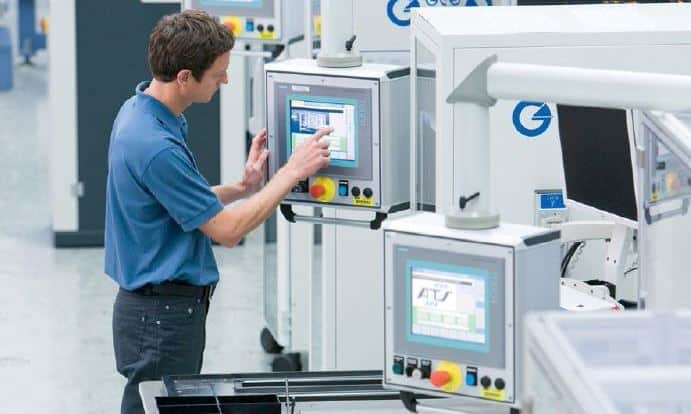 Viewpoint
Viewpoint
Ella Balagula of Elsevier R&D Solutions explains how digital technologies are freeing engineers from their desks and helping them to be more collaborative than ever before.
The digital age has changed the nature of work, obtaining information and making decisions for everyone. The advent of mobile devices and the Internet means we not only have the greatest repository of information instantly available, but now we can also carry it in our pockets. This has produced a great many innovations in the way that we work, not least of which is the explosion of remote workers and cloud-based tools that help colleagues collaborate across various locations simultaneously.

Engineering has been affected by these changes more than almost any other profession. Previously, engineers were stuck at their desks, ploughing through hundreds of journal articles and technical documents to find the right data for a given project. Oftentimes, many decisions were made in isolation with very little collaboration with colleagues. However, in the ‘smart’ digital age, this just isn’t the case anymore. Today, engineers are more collaborative and able to manage projects on-site rather than from the office, with instant access to a sometimes overwhelming amount of information at their fingertips.
Industry 4.0
Former British Business Secretary Sajid Javid recently commented that, “In stark terms, it now takes a worker in the UK five days to produce what his or her counterparts in Germany can deliver in four.” This concern over productivity is not confined to Britain – countries round the world are worried about keeping up in this ever-evolving global market. In a recent interview, economist Robert Gordon, declared the American productivity miracle to be over, arguing that productivity growth has been a meagre 1.4% since 1970. Countries that fail to address the issue of productivity risk being left behind by those who invest early and well.
The solution from the UK government is a 15-point productivity plan, tackling key areas such as planning and transport. Many of the issues raised, such as the increased use of digital technology and data sharing, support the emerging ‘Industry 4.0’ trend – the next step in the digital revolution that is set to create the "smart factory". The success of this and other productivity initiatives will go a long way to defining the winners and losers of the 21st century, and will be hugely reliant on the engineering industry.
Implementing and managing Industry 4.0 initiatives involves building a digital backbone for organisations – which will require a range of top-level engineering talent, with access to the right information at the right time in the right place. In order to be as effective as possible in implementing this vision, engineers need to be on-site at the factory and the power-plant, overseeing and guiding these projects on the ground, rather than attempting to do so from their desk.
Technology is king for today’s engineers
In order to be as productive and innovative as possible, today’s engineers need the ability to collaborate with partners across the world. This is because technical data is not only proliferating at an astonishing rate, but cross-disciplinary knowledge is increasingly necessary for modern projects. In addition, engineers need to adapt to the wealth and intensity of information that is available and efficiently select the most relevant and accurate information for the problem at hand. Finally, for the digitally native generation now entering the workforce, having the use of agile digital solutions in their workplace is the minimum expectation.
Digital natives expect personalised results along with customisable apps and tools. In the past, smart search engines that provided the right reference answer were sufficient, but no longer. Now, digital native engineers expect that search to be surrounded by more robust decision support tools. For engineering tools, this means understanding user intent, knowing personal needs and user history, with customisation capabilities, supporting them to make confident decisions.
The need for specialist knowledge
While generalist consumer search engines are great for everyday life, engineers need far more precise tools for their work. To do this effectively, they need critical, trusted data that can be rapidly discovered, accessed and shared via web-based applications. Specialised search engines containing technical engineering reference data, along with powerful, trusted analytics which can be integrated with modelling software and other key tools in the engineering workflow, will allow the role of the engineer to evolve from a desk-bound, siloed worker to an agile innovator.
In the competitive global market that the digital age has created, engineers are under even more pressure to be productive. The decisions that engineers make every day increasingly impact our world, environment and the sustainability of our future. Information providers can meet this challenge by delivering content that is highly searchable and interactive, surrounded by insightful analytics and decision support tools, and integrated with other key engineering applications, helping them overcome engineering challenges and improving outcomes. Unless firms are willing to invest in the right information and technical tools that can enable engineers to accomplish these tasks, their vital work will go unfulfilled and their talent wasted. These precision tools, and their inherent flexibility, are crucial if today’s engineers are to make Industry 4.0 a reality.
Ms Balagula is a Senior Vice President responsible for engineering and technology solutions at Elsevier R&D Solutions. She studied Mathematics at Odessa State Economics University before getting an MBA in Financial Management from MIT in 1999




Red Bull makes hydrogen fuel cell play with AVL
Formula 1 is an anachronistic anomaly where its only cutting edge is in engine development. The rules prohibit any real innovation and there would be...